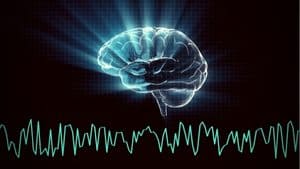
A vivid dream (also known as a “vivid hallucination.”) is an unusual dream where you feel as if you are awake and can interact with the dream or remember it later. People wondered “Are Vivid Dreams a Sign Of Intuition?”
In most vivid dreams, you feel conscious, but you are in a dream state.
For example, when lucid dreaming, you are far more awake than in vivid dreams. Yet, you can also have vivid dreams during lucid dreaming.
However, people often wonder if vivid dreams are signs of intuition or if our subconscious mind wants to talk with us in the dream state?
- The subconscious mind can be more valuable while vivids dream because of rapid eye movement. Also, what you dream about is essential.
- When you where theta brain states, such as the Rem-sleep state, your dreams seem more real and vivid.
- Our dreams are sometimes scary and nightmares. It might signify a traumatic experience we hold in our subconscious.
- When we are deep-sleep state, we are connecting our intuition. The state of consciousness will drop.
- You can control your dream via practicing. However, most people won’t try to control their dreams.
When we wake up, our brain works consciously, and we are aware of our life because of adrenalin, and the prefrontal cortex is working hard.
We have a high cortisol level, which has filtered most of the things we saw. We are using our conscious brain.
So, we got the point.
Related: How does hypnosis affect brain activity?
Are Vivid Dreams Sign Of Intuition?

When we are relaxed, we can connect our side, such as intuition. So, the dreams we see most of the time mean things about past or current life. It’s like a mirror.
- We can improve our intuition by doing regular meditation for a long time. This will improve our visualization and imagery skills.
- The more you relax, the more you can deep sleep and lucid dream.
- For improving deep sleep and remembering vivid dreams, you can also try some of the techniques and methods.
- When you see a vivid dream, you have some deep sleep happened.
There are types of dreams that happen depending on the sleep state. Neuroscience started to observe the human brain, and dream research improved via observing brain activity.
Do you know long-term memory works better during deepest sleep? Part of the brain called the frontal also, can have more efficient, energetic, and better.
Meditation Techniques, Slows Brain Stress, and Rested

Meditation techniques are available to improve sleep quality, self-awareness, and stress reduction.
Types of meditation such as visualization will improve your imagining skill in your mind.
For example, you are walking in the forest and see a tree. When you touch it, you feel the sensation of the trees.
As you can see, when you deep dive into this imagery state, you can improve your skill of vivids dream.
Learning how to meditate isn’t complex as you things; also, it’s enjoyable.
People also try other forms of meditation such as out of body experience, Zen, or vipassana for different reasons. However, they are different kinds of benefits.
Effects of sleep deprivation impact health and mood. Psychologists discover lack of sleep and unbalanced sleep patterns are harmful to our bodies.
Hypnosis, Dreams, and Subconscious

As we discuss meditation, hypnosis is also suitable for vivids dream and connection to the subconscious body.
You will see yourself in a new location or experiencing an event that you haven’t experienced before in the dream world. You may also feel like you are moving faster than you are. A vivid dream also can feel more natural to you than waking life.
Related: How to Get Answers From Your Subconscious Mind?
Deeper, uninterrupted sleep stages will improve learning and memory, better-secreted neurotransmitters, and better response to physiology. Through the night, your growth-hormone secretions increase which leads to therapeutic properties.
Why We Dream: Meaning of Dreams? ( Different Sleep Stages, and Sensory)
There are tons of things that might be the cause of your dream. As we talk, your dream is affected by;
- The way your perspective about the world, and behavior.
- Your sleep state, brainwaves, body temperature, how much sleep, and shift-work
- Your desire, fears, phobias, heart rate, and even muscle tones.
- Your habits sleep pattern, napping
- Nutritional level (B vitamins etc.), caffeine intake,
- Melatonin production
And so on. Sleep mostly depends on these elements as well as vivid dreams.
Different stages of sleep have different effects on people. The study of dreams is start to understand brain waves, alpha and their waves, states of consciousness, serotonin, melatonin, and sleep phases in the cerebral cortex.
Why do we dream? Because our phases of sleep mostly correlated with the biological clock. Dreamless sleep, sleep and dreams, rem phase, and brainwaves mainly depend on that sleep cycle.
Summary
Mainly vivid dreams can be a sign of intuition. But it doesn’t always like this.
For example, if you have vitamin B1 deficiency or magnesium deficiency, you can more likely experience a nightmare.
If the dreams become weird, try to remember them. It might be physiological issues.
- The sleep cycle is essential; before falling asleep, try to optimize your sleep by improving melatonin production
- Some people reported that using magnesium, zinc, and b6 vitamins makes people see vivid dreams.
- Dreamless (NREM) sleep occurred in the brain waves in delta waves states.
- Circadian rhythm is an essential factor when it comes to memory consolidation and vivid dream
- Binaural beats can change brain waves. However, it might not work for everyone.
- The more you are in the rem stage; the more lucidity can happen.
Vivid dreams sometimes can be good. When it comes to vivid dreams, you do not always need to be afraid of bad things. Some of them might be weird, but many dreams are not bad.
Sleep habits are important factors here. Time to sleep, how much you sleep, hours of sleep, hormones, naps, circadian, and even neurological state are essential factors in how vivid your dream is.
Source: https://blogs.webmd.com/from-our-archives/20100722/dreams-nightmares-and-stress

